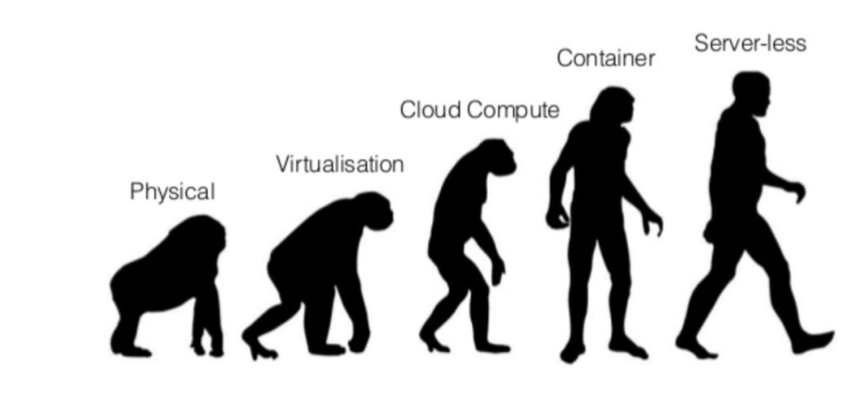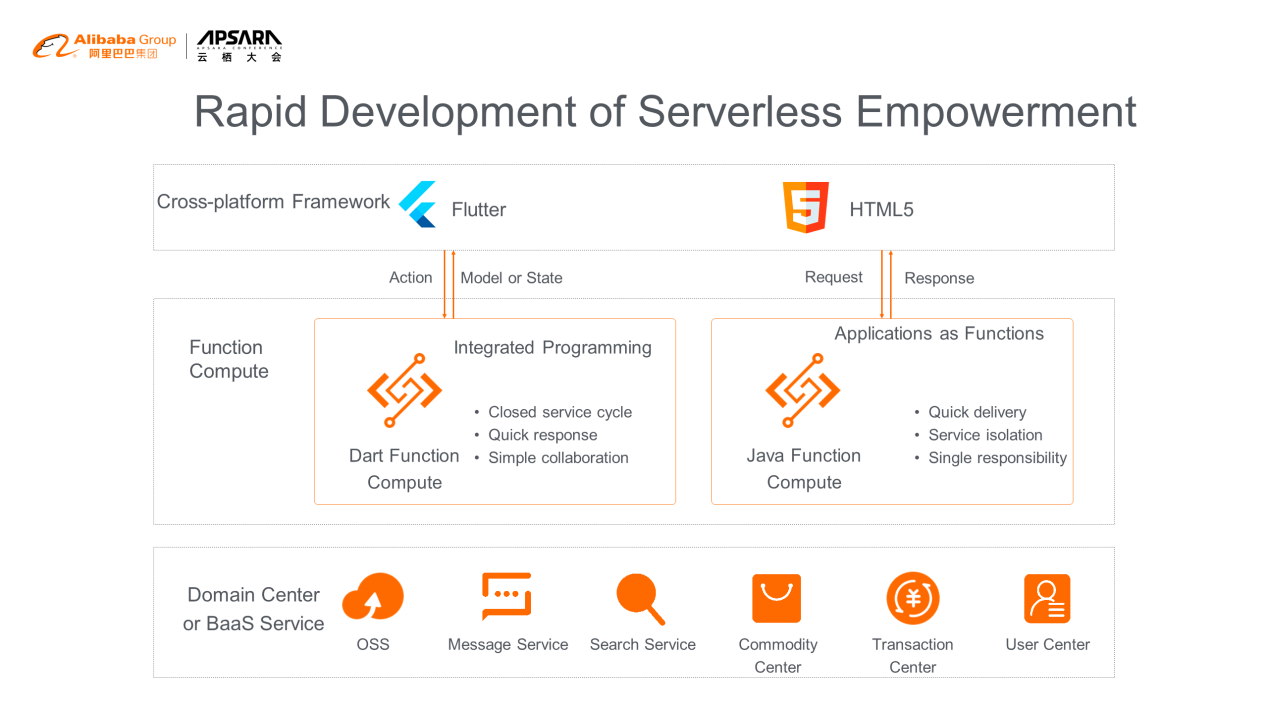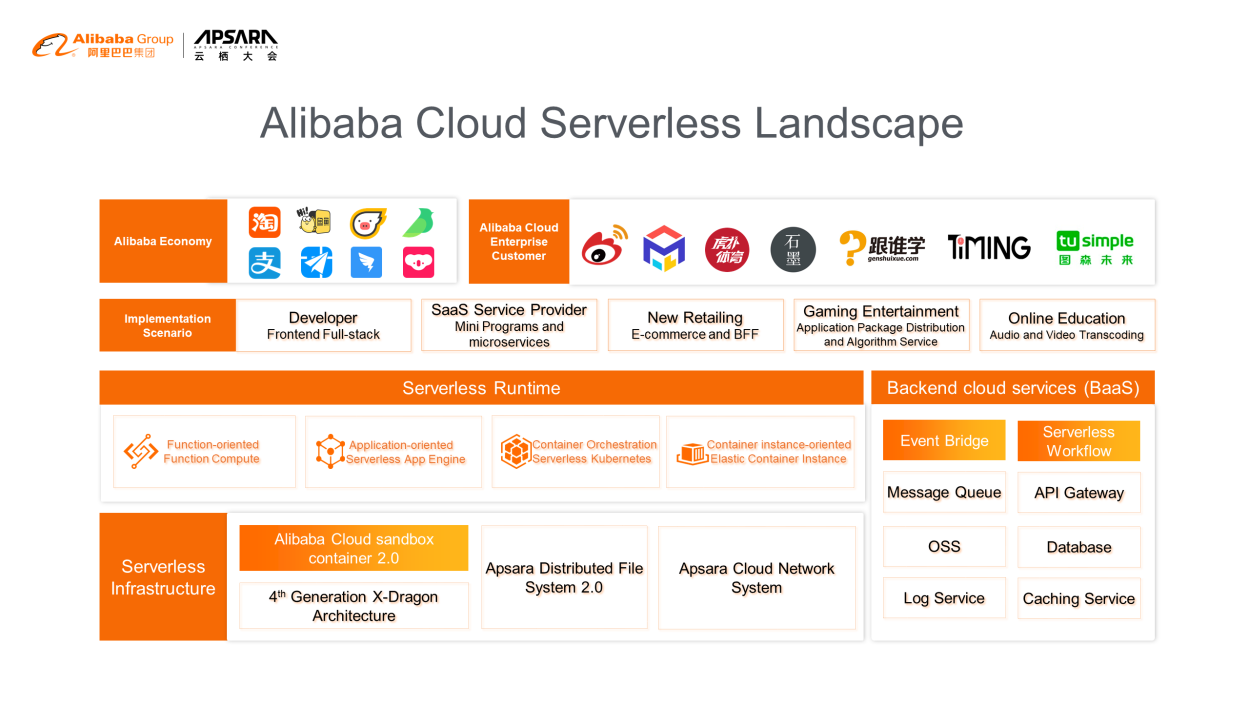Catch the replay of the Apsara Conference 2020 at this link!
Moore's law summarizes the experience that the performance of processors in the integrated circuit field doubles every two years. The experience seems to apply to the technological evolution in the cloud computing field.
Ten years ago, UC Berkeley predicted that cloud computing would flourish. Customers pay for cloud resources on-demand without building their own data centers, just like in leasing mode. This reduces the investment of enterprises in IT. With rich product support on the cloud, cloud computing accelerates the launch and iteration speed of the business and promotes the core competitiveness of enterprises. Cloud computing ensures the stability and security of cloud-based businesses.
The benefits of cloud computing include high economy, efficiency, and openness. Various market analysis reports indicate that the cloud is gradually replacing the traditional IDC market.
We are always curious about the future and excited about the transition from old to new.

In 2015, AWS launched Lambda, and the word "serverless" first appeared in public. Subsequently, Alibaba Cloud launched Function Compute in 2017, and the serverless application engine SAE and serverless container service ASK in 2019. UC Berkeley again predicted that serverless would replace serverful computing. As a result, serverless has attracted extensive attention in the industry.
Serverless brings the benefits of cloud computing to extremes: the highest economy, efficiency, and openness. It reduces idle resources to zero through an event-triggered mechanism. Serverless operates just like a signal light, which consumes power only when people approach and automatically go off when people leave. This realizes real elasticity. At the same time, serverless eliminates the need to care about the O&M of the IaaS layer (servers).
Xianyu is one of the active explorers of serverless.

Wang Shubin (Xianyu Architecture Expert): "Xianyu is a bit like Taobao and also has e-commerce properties in terms of business characteristics. On the other hand, Xianyu is an independent app that has its own closed traffic loop and user characteristics. Therefore, in terms of technical architecture, most of Xianyu's basic capabilities (in the lower part of the preceding figure) depend on the e-commerce business systems of Alibaba Cloud and Taobao due to the similar attributes. These basic capabilities are the cornerstone to support the rapid iteration and development of Xianyu. Xianyu needs to have innovative and fast R&D capabilities to meet its business needs due to its unique features. These basic capabilities are the key to the rapid development of the architecture."
The Flutter and HTML5 cross-platform frameworks release productivity. In many scenarios, terminal personnel can develop the BFF layer directly on the server based on serverless technology to form a cloud-server integrated R&D model. This significantly reduces server-cloud collaboration because collaboration is one of the key factors that deteriorate R&D efficiency.
What scenario is appropriate? The first scenario is the interaction-intensive pages. For example, on the orders page, prices need to be recalculated when users change the order address, transaction method, or discount method. This produces high cloud-server collaboration costs. The c integrated model can be used to make interaction and data logics unified. The second scenario is the activities and programming pages. Such pages can be launched quickly and have lightweight logics on the server. These pages are mainly used for data assembly and suitable for integrated programming. These scenarios are the most applicable. There will be more lightweight scenarios as server developers improve the function computing capabilities.
In addition to integrated services, more glue services are provided by server developers. These services are developed on traditional applications, which encounter large, conflict, and coupling issues. We can use the serverless architecture to split traditional applications, so developers can focus on their business, achieve fast delivery, and significantly improve R&D efficiency.
In addition to Wang Shubin of Xianyu, Shimo Docs Serverless Expert Wan Ming, Timing Microservice Architecture Expert Zheng Chao, and Director of the Lianhua Huashang Information Center Wang Jianzhong are also exploring serverless technology.
Wan Ming: "We use serverless to change and merge tables and to compute table rendering results. Serverless improves development efficiency and reduces computing costs in CPU- and memory-intensive scenarios."
Zheng Chao: "We do not have an O&M team. With the automatic elasticity of SAE, within seconds, we can easily and dynamically scale services to handle high and low traffic. This not only guarantees the SLA of the system, but it also saves about 35% of the hardware costs compared with the previous ECS retention method."
Wang Jianzhong: "We transformed the core online business into a serverless mid-end model, which uses "Function Compute, API Gateway, and Tablestore" as the computing, networking, and storage cores to elastically support resource needs during daily hours and major promotions. The project cycle is reduced from six months to three months, and the resource upgrade cost was reduced by about 100%."
Enterprise customers, such as Shimo Docs, Timing, and Lianhua Huashang, can quickly use serverless technology in business applications thanks to the rich serverless products and solid underlying techniques of Alibaba Cloud.

Ding Yu (Alibaba Cloud Intelligence Researcher): "Alibaba Cloud provides a wide range of serverless products, including Function Compute, application-oriented SAE, Serverless Kubernetes for container orchestration, and ECI for container instances. They constitute the most complete serverless product matrix among all current cloud vendors. Behind these serverless products are the four core techniques of Alibaba Cloud infrastructure: the X-Dragon architecture, sandbox container, Apsara Distributed File System, and Apsara Cloud Network System. They provide a solid cornerstone and strong core competitiveness for serverless technology.
Perfect serverless products are accompanied by complete backend cloud services and rich developer tools. For example, the newly released Event Bridge can easily connect cloud services, cloud applications, and SaaS applications, to further accelerate the end-to-end integration of Alibaba Cloud serverless products. Serverless Workflow uses a visual function orchestration model to easily construct complex tasks, such as media processing, machine learning pipelines, and automated O&M processes.
In addition, Serverless-tools and Serverless Application Center were launched to build a more open and standard serverless community with no vendor binding. Container images and performance instances are a combination of the container ecosystem. It overcomes the minimum operating unit of functions and makes it easier for developers to use. One-step cloud migration and one-click serverless transformation may come true."
Looking at the figure at the beginning of this article, software technology has gone through the phases of physical machines, virtual machines, cloud computing, and container technology. The truly hands-free serverless is coming soon. For the question of what the trend of serverless will be in the next decade, Alibaba Cloud Senior Technical Expert Situ Fang gave this answer:
Situ Fang (Alibaba Cloud Senior Technical Expert): "Over the next decade, serverless will be open, standard, and free of vendor binding. Serverless will be closely integrated with the cloud-native ecosystem. Serverless will be able to be integrated with server application in a simple manner and support complex business at low costs."
Catch the replay of the Apsara Conference 2020 at this link!
Cooperation with the Yidui App Allows Alibaba Cloud to Empower the Dating and Social Industries
Alibaba Cloud Launches a Series of Cloud Native Databases at the Apsara Conference 2020

2,593 posts | 793 followers
FollowAlibaba Clouder - February 24, 2021
Alibaba Cloud ECS - September 10, 2020
Alibaba Clouder - February 19, 2021
Alibaba Clouder - December 11, 2020
Alibaba Developer - March 3, 2022
Alibaba Developer - March 3, 2020

2,593 posts | 793 followers
Follow Container Service for Kubernetes
Container Service for Kubernetes
Alibaba Cloud Container Service for Kubernetes is a fully managed cloud container management service that supports native Kubernetes and integrates with other Alibaba Cloud products.
Learn More ACK One
ACK One
Provides a control plane to allow users to manage Kubernetes clusters that run based on different infrastructure resources
Learn More Cloud-Native Applications Management Solution
Cloud-Native Applications Management Solution
Accelerate and secure the development, deployment, and management of containerized applications cost-effectively.
Learn More Apsara Stack
Apsara Stack
Apsara Stack is a full-stack cloud solution created by Alibaba Cloud for medium- and large-size enterprise-class customers.
Learn MoreMore Posts by Alibaba Clouder